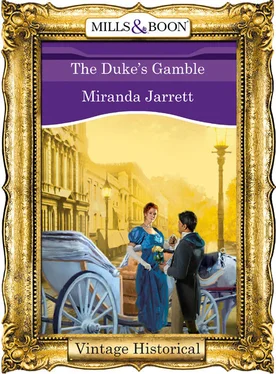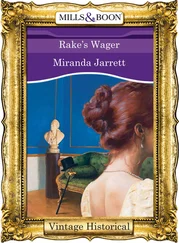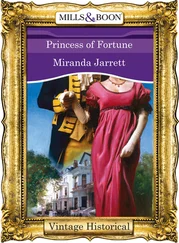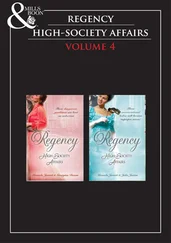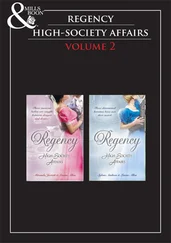“Very well,” he said, more relieved than he’d want to admit. “What shall it be? The weather? The crowds in the street around us? Where we shall dine this evening? What member is cheating the club at hazard?”
Surprise flickered across her face, only for an instant—she was very good at hiding her emotions—but enough for him to know what he’d overheard between two servants last night was true.
“Wherever did you learn such a thing, your grace?” she asked with forced lightness. “A cheat at the Penny House table?”
He smiled, the advantage back in his court. “You’re not denying it.”
“Because it’s too preposterous to deny,” she declared. “Our membership consists of only the first gentlemen in the land. How could I suspect one of them of cheating?”
“Because gentlemen hate to lose, perhaps more than other men,” he said. “Because gentlemen can be desperate, too. Because if you are as pathetically trusting as you wish me to believe, then I must report you to the membership committee at once, before you let some villain steal away everything from under your nose.”
Bright pink flooded her cheeks—an angry, indignant pink, not a blush at all. “That will not happen, your grace. You have my word.”
He smiled indulgently. “You can’t simply wish away a scandal, my dear.”
“I’m not,” she said tartly, “and I’ve taken action to stop it. You should know me well enough by now, your grace, to realize that I am not too proud to ask for assistance if I need it.”
“And you in turn should know me well enough to come to me if the troubles rise around your ankles.” He reached his hand out across the back of the seat so it almost—almost—brushed hers. “It’s far better to reach out for a lifeline than to let yourself drown.”
She shifted away from his hand. “How fascinating that you regard yourself in that way, your grace.”
“Oh, I regard myself in a great many ways, Miss Penny,” he said, “and you should feel free to do the same.”
“You can play at being my Father Confessor all you want, but I still won’t invent a scandal simply for the sake of telling it to you.”
“Even if it’s no invention?” he asked softly. “Even if it’s true?”
“No,” she said, raising her chin a fraction in a way he recognized as a challenge. “Especially because it’s not.”
He sighed, willing to concede for now. She’d confide in him eventually, anyway. Ladies always confided in him, and they’d have the entire rest of the day together. “You’re a stubborn creature, Miss Penny.”
“You’re back to that virago nonsense again, aren’t you?” She narrowed her eyes a fraction. “Why is it that when a man holds firm, he is steadfast, but when a woman does it, she’s stubborn?”
He laughed. Oh, she was good, virago or not, and his admiration for her rose another notch. “I’ll stand corrected. You, Miss Penny are steadfast, not stubborn.”
“I suppose I should thank you for that,” she said. “Or didn’t you intend it as a compliment?”
“I did,” he said. “And well deserved it is, too. I can offer more if you’d like.”
“I’m sure you could.” Her mouth curved wryly to one side. “But I’ve a better suggestion for conversation, your grace. Let us speak of you.”
“Of me?” He hadn’t expected that. “An agreeable enough subject, so long as we keep from my sins. Perhaps I’ll begin by telling you how much I enjoy your company.”
She leaned forward, toward him, her elbows on her knees and her hands clasped.
“Bother that,” she said. “I already know you enjoy my company, else you wouldn’t have asked for more of it this afternoon. I want to learn something new about you. Tell me of your childhood—your first pony’s name, your favorite tree to climb, the vegetable you found most loathsome to eat in your nursery suppers. What manner of boy were you, anyway?”
“My manner was ill-mannered, truth be told,” he said, laughing. “I was the only boy after four girls, the heir to my father’s title that everyone had long abandoned hope of ever living to see. I arrived seven years after my youngest sister, a complete surprise that set every church bell in the county to pealing. I was so petted and coddled that it’s a wonder I wasn’t completely spoiled for anything useful.”
She grinned wickedly. “Some might disagree with you, your grace.”
He returned her grin, relishing its warmth. Women didn’t generally ask him about his childhood, and it rather pleased him that she had. “Perhaps I am spoiled. But I had a deuced fine time as a boy, I can tell you that. I spent most of the year in the country, at Guilford Abbey, getting into whatever mischief I could.”
“That’s in Essex, isn’t it?”
“Devon,” he said, the pride clear in his voice as he let himself sink into a hazy, happy recollection of the past. “‘Devon is Heaven,’ my father used to say, and there was no finer place for any boy. I had a new pony every summer to match my height as I grew, a whole pack of dogs that trooped along with me and a boat to sail in the duck pond. I went hunting and fishing with my uncles and my sisters’ husbands, played out the American war in the orchards with my cousins and ate my fill of sweet biscuits and jam with the servants at the big table in the kitchen.”
“So even the servants spoiled you,” she said softly, watching him from beneath the brim of that dreadful hat.
“Oh, they were the worst of the lot,” he said. “Cook always had a soft spot for me, and she was always baking me special little pies, carving my initials in the top of the crust.”
That made her smile. “So you wanted for absolutely nothing.”
“Not a blessed thing,” he agreed. “I was the happiest little rogue alive.”
“I hope you won’t forget that, your grace,” she said, glancing out the window as the chaise slowed. “Ah, we’ve arrived.”
Curious, he turned toward the window, as well; he’d been so caught up in his reminiscing that he’d no notion of how far they’d traveled. He looked, and saw, and his expression at once grew somber.
Could there have been a more different scene from the green Devon hills he’d been describing? They’d long ago left the neat, fashionable prosperity of St. James Square for a neighborhood in London that he knew he’d never visited before.
Here the houses were so old they seemed ready to topple into the street, ancient timbers and beams that somehow must have survived the Great Fire over a hundred years before. Broken windows were stuffed with handfuls of dirty straw, or simply left open and gaping, like a broken tooth in a drunkard’s smile. No reputable trades kept businesses here, but every other building seemed to house an alehouse or gin shop. Even on a Sunday, last night’s customers still sprawled on the steps, while a few desultory women with bodices open and cheeks painted with tawdry red circles tried to lure their first customers of the day.
Because the afternoon was warm, and the same sun that shone on the rich folk in their open carriages in Green Park also fell here, the street was also filled with dirty, barefoot children, cripples on makeshift crutches, babies wailing with hunger in their too-young mothers’ arms, mongrel dogs scrapping over an old mutton bone, and costermongers hawking fruit and vegetables too rotten for the better streets. The street itself was unpaved, with a deep kennel in the center filled with standing, putrid water, thick with dead rats and human filth.
His coachman would have seventeen fits when he saw that muck on the gold-trimmed wheels of the chaise.
Amariah was unlatching the door herself, not waiting for the footman. “Mind yourself, your grace. They’ll all ask you for something. But if you give one a coin, then fifty more will suddenly appear with their hands out, too, so I’ve found it’s best not to begin. They’ll only squander it on gin, anyway, which is why I prefer to give them food instead.”
Читать дальше
